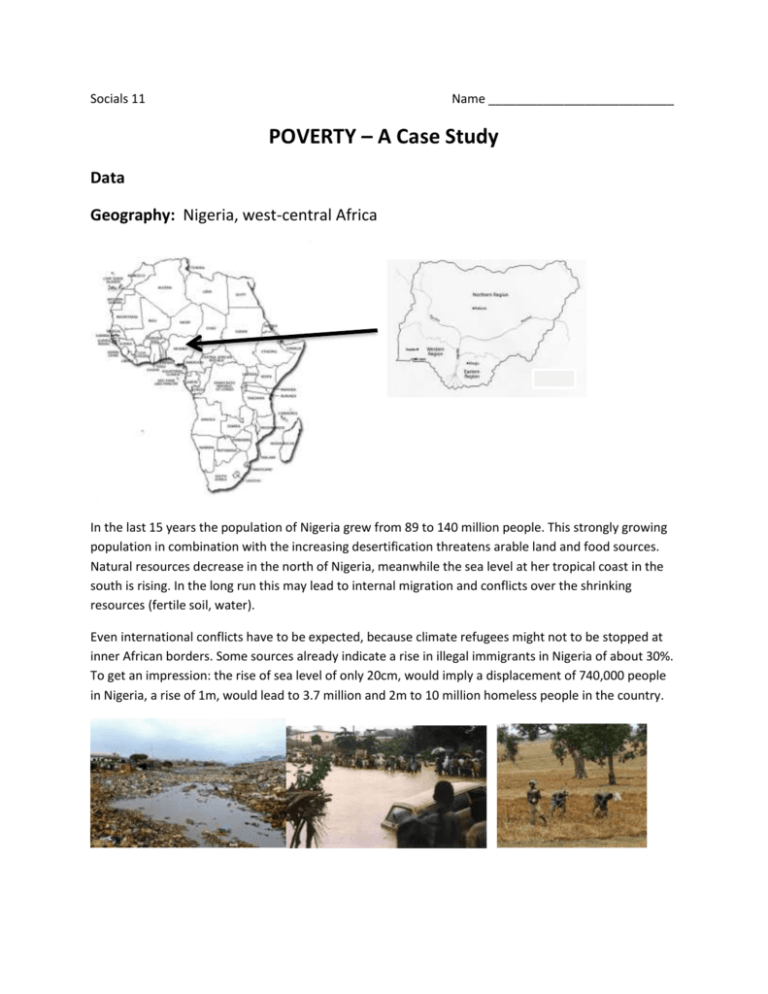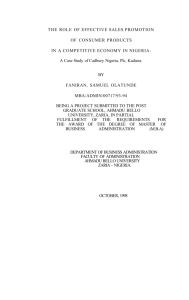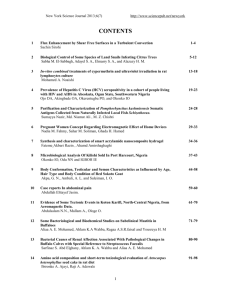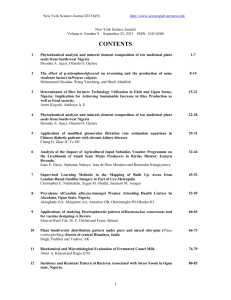here.
advertisement

Socials 11 Name ___________________________ POVERTY – A Case Study Data Geography: Nigeria, west-central Africa In the last 15 years the population of Nigeria grew from 89 to 140 million people. This strongly growing population in combination with the increasing desertification threatens arable land and food sources. Natural resources decrease in the north of Nigeria, meanwhile the sea level at her tropical coast in the south is rising. In the long run this may lead to internal migration and conflicts over the shrinking resources (fertile soil, water). Even international conflicts have to be expected, because climate refugees might not to be stopped at inner African borders. Some sources already indicate a rise in illegal immigrants in Nigeria of about 30%. To get an impression: the rise of sea level of only 20cm, would imply a displacement of 740,000 people in Nigeria, a rise of 1m, would lead to 3.7 million and 2m to 10 million homeless people in the country. Often it is argued that Africa need not care about climate change because in global dimensions Africa itself produces negligible greenhouse gases. Climate change is primarily caused by the developed countries, so they should be the ones dealing with it. However, it is the bitter irony of destiny that Africa contributes least of all the continents to the climate change, but will probably suffer most from its consequences. According to economists it is a typical case of negative external effects, an externalization of costs: A noninvolved party bears the costs of a third party’s actions. Table – Gender statistics GDP per capita Health Statistics 3.4 million Nigerians live with HIV/AIDS 2.2 million children are orphans due to AIDS Infant mortality rate is 78 out of 1000 live births U5MR is 124 out of 1000 births Literacy rate is 51% Doctor patient ratio is 1 : 3500 (WHO standard is 1 : 600) Economic/Political Information In 2012, Nigeria's external debt was an estimated $44 billion. Apart from petroleum, Nigeria’s other natural resources include natural gas, tin, iron ore, coal, limestone, niobium, lead, zinc and arable land. Oil was first discovered in Nigeria in 1956. The oil and gas sector accounts for about 35 per cent of gross domestic product The country joined OPEC in 1971. Use the table below to address the poverty issues in Nigeria Issue overpopulation Low Education Water Health Climate Change Causes Effects Solutions Obstacles











